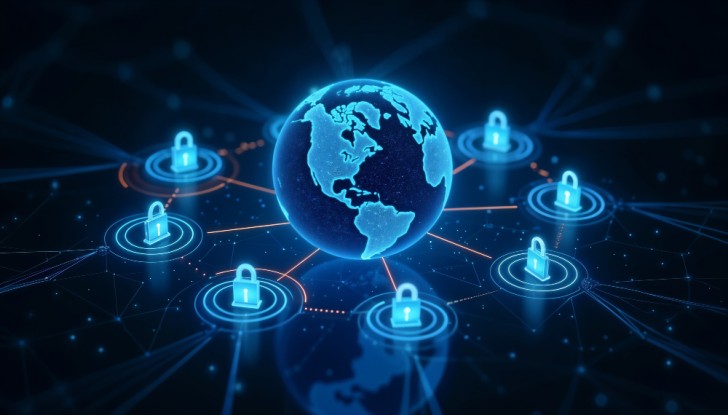Bitcoin’s origin lies in a content of intense distrust towards money matters and overall economics, promoting the modernization and civilization of the world while aiming to give society the opportunity to accomplish what even the most critical institutions could not live up to. Nevertheless, this digital asset truly had a central role in many changes that affected this century, triggering numerous individuals to acknowledge its potential and actively search for the ideal strategy on how to buy Bitcoin.
Despite the awareness that blockchain technology has its unfavorable features, throughout this article, a more benevolent perspective will prevail, highlighting how society and various industries have been operating differently since this innovative distributed ledger technology has entered the scene. While countless individuals first learned about Blockchain through Bitcoin, you should know that it has shown tremendous potential and proven itself to be capable of so much more. Let’s find out!
Blockchain Upgrades Overall Society
Blockchain has been actively fostering equality and inclusion, aiming for a world where no community is left behind in the evolving digital economy. In addition to the core initiative of blockchain technology, which is to break down the financial barriers of the unbanked or underbanked, it offers society the opportunity to create a digital replica of any real object and perform the necessary action in real time. Regardless of the specific type of anxiety that creeps up for numerous individuals when encountering words like “metaverse” or “NFT”, we can remember how the U.S supermodel Bella Hadid has left the catwalk behind in 2022, launching CY-B3LLA, a collection of Non-Fungible Tokens that incorporated 3-D scans of her face and body. The model sold cyber versions of herself to various collectors around the globe, offering them a passport to the global community by allowing them to participate in exclusive virtual and physical events. The full price of CY-B3LLA was revealed only for those who secured their place on the allowlist.
Moreover, during the apotheosis of the pandemic, when numerous people were in critical need of effective COVID-19 vaccines, Blockchain ensured the congenial distribution of life-saving immunization worldwide through the creation of an intelligent vaccine tracking system. This practical approach also facilitated governments by reducing the costs they would have typically paid if it were not for the blockchain tracking system that limited the number of vaccines that were normally thrown out due to their substantial vulnerability to excessive heat or cold.
Furthermore, food companies are also benefiting from blockchain technology, adopting it to improve food safety and consumer health. Companies that have already been tracking where produce and other food comes from include Walmart, Nestle, Unilever, and Tyson Foods.
Blockchain Drives Significant Innovation In Government And Public Services
Digital voting systems are now more secure and transparent thanks to a decentralized ledger, seeking to overcome common concerns of tampering and voter fraud. Estonia is a relevant example of a country that experiments with blockchain-based voting by immutably recording votes and verifying them in real time. This practice has increased the trust of Estonian inhabitants in democratic processes, moving towards a society of transparency and reduced corruption.
The management of public records like licenses, land registries, and birth certificates has always been complex and prone to errors and fraud. Blockchain, with its tamper-proof ledger, can effortlessly simplify those inefficiencies, ensuring enhanced accessibility and data integrity.
Blockchain Elevates Financial Services
Unlike traditional banking systems, which rely on centralized ledgers controlled by dominant third parties like SWIFT, blockchain technology has been recognized for its security, transparency, trust, programmability, privacy, high-performance, and scalability. Blockchain equals faster, cheaper, and more transparent processes in financial services, elevating cross-border payment systems that are typically plagued by delays, high fees, and way too many intermediaries. Platforms such as Ripple (XRP) are working with banks to reduce settlement time from days to seconds and cut costs, empowering society to upgrade from traditional banking systems to decentralized finance. Furthermore, decentralized finance (DeFi) represents Blockchain’s most disruptive innovation, leveraging smart contracts to secure and automate transactions while opening new horizons for financial inclusion.
Blockchain Upgrades The Management of Digital Identity
Digital identity management refers to the technologies used to ensure that individuals are genuinely who they claim to be when accessing various systems or services, distinguishing between different users for activity tracking, fraud detection, and cyberattack prevention. While it is widely known that traditional systems are typically highly vulnerable to identity theft and data breaches, Blockchain addresses these shortcomings. It empowers individuals with greater control over personal information, enabling the concept of Self-sovereign identity (SSI). This model focuses on giving users full ownership and control over their digital identities and does not rely on a third party to do so. Platforms such as Civic have already implemented this approach, offering Web3 authentication solutions and secure identity management.
In short, instead of depending on centralized databases, users are now storing credentials on the Blockchain, which allows access only when necessary.
Concluding Remarks
Blockchain technology is expected to have a substantial impact on the global economy, with numerous speculations about its market potential to grow to $469.9 billion by 2030. Furthermore, the intersection of Blockchain with the Internet of Things (IoT) is transforming business operations, fostering a stronger, clearer, and better system for handling value and data between connected devices. Other benefits of these remarkable inventions include data monetization and ownership, immutable device identity, interoperability, reduced costs, and automated smart contracts.
This combination can make many new things possible, giving society a tremendous chance to handle the modern digital world with confidence.
 Editorial staff
Editorial staff

 Editorial staff
Editorial staff


